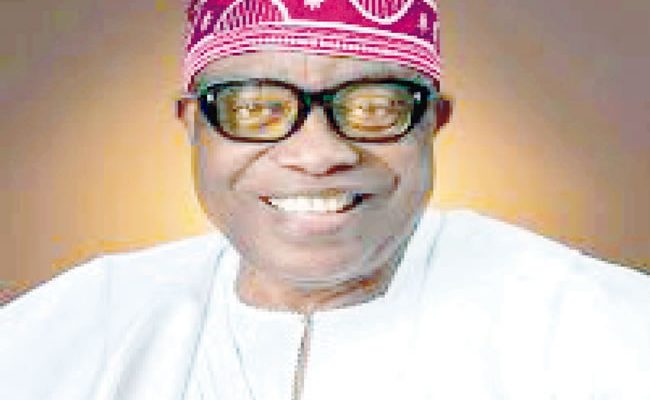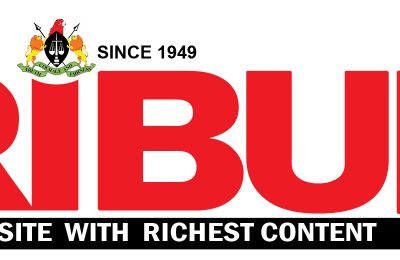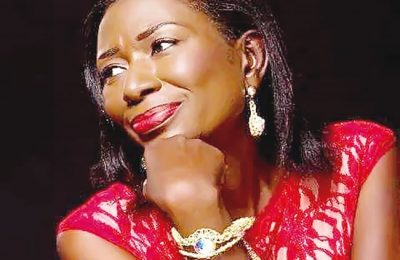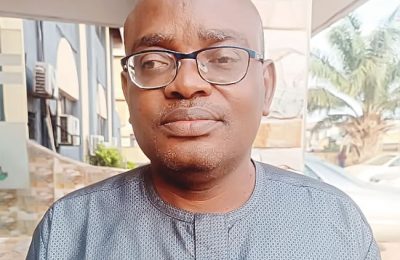The Nigerian Tribune is 75 years old today 16 November 2024. As I said when the newspaper turned 50 in 1999, it is a landmark for a newspaper which is privately owned. This occasion is of immense significance to me as well, having spent 27 years of my life with the newspaper. I intend here to retell the story as I did in 1999:
My journalism career started in the morning of 2 February 1972, when I reported for duty at the one-storey mud house located at Yemetu Adeoyo Road in Ibadan.
My first day at the Tribune premises Adeoyo Road, Ibadan, was with mixed feelings. I was happy that I had landed a job at last but I was sad that I had to work inside the old building that looked like one of those built in my ancient hometown, Oke-Danre, centuries ago. I had heard a lot about the Nigerian Tribune. I did not believe my eyes that the much-talked-about newspaper could be produced from a rickety building.

My consolation then was that those I met in the building were happy doing the job under such atmosphere. Then who was I to complain? The main building was divided into departments. The ground floor housed the administration, accounts and circulation departments, while the editorial department occupied the first floor. And the back of the building was the production department. Here, the manually operated printing machines were installed. Up to six hefty men operated this machine to produce 15,000 to 20,000 copies per day.
The Tribune of the time circulated its copies through commercial vehicles. The company had no vehicles of its own at that time.
Communication facilities in the editorial department were almost non existent. We monitored both national and foreign news on a rediffusion. There was a Reuters machine that had ceased to function and only a telephone line for all.
None of the editorial staff, the editor inclusive, had a personal vehicle. Mr. Bakare was then the Editor. He bought his first car, Rio, in 1975. None of the reporters or subeditors could boast of even a bicycle.

On many occasions, my friend, Eric Teniola (who brought me to Tribune), and I went about our various assignments on foot. We were both living at the Liberty Stadium area of the city. My daily beat was the police headquarters, Eleyele, about 10 kilometres from the office and Eric’s was at the secretariat, 15 kilometres away. I remember the occasions we trekked to our beats, to the office and back home, because we were so financially down that we could not afford transport fares, except two shillings (20 kobo) for our only meal for the day.
The only saving grace for some of our senior members of staff then was that they resided very close to the office. It was a taboo for reporters to make claims for transport outside what they earned as salary. Whenever we asked for it, we were always reminded that the transport allowance had been included in our pay packet. The only vehicle I noticed at the premises from 1972-1975 was a black 404 Peugeot saloon car which belonged to Alhaji Lateef Jakande, although I was told there were many vehicles in the premises in the early sixties. My observation in the early 70s, was that the paper was being run through the blood and sweat of the dedicated workers.
In 1973, I attended a news reporting course at the Nigerian Institute of Journalism, Lagos. By the time I came back, more hands had been employed. They included Toye Akiyode (former editor, Vanguard), Bode Oyewole (former Principal Editor FRCN, Ibadan) and Valentine Ahams (former Public Relations Manager, NEPA, Northern District). I did so well in the course that the Director of the Institute, Mr. John Lahey, recommended me for the Diploma course. I told him of my poor background. He wrote to the Managing Director, Alhaji Lateef Jakande, about my plight and Alhaji Jakande benevolently approved for me a study leave with half pay. I graduated in 1976 and assumed duty as the News Editor of the paper.
Mr. Bakare had been elevated to a managerial post and the late Ikahan Yakubu had taken over as the editor. Things began to improve. Mr. Bakare had bought his first car and the circulation manager also got one. After Mr Yakubu left as the editor, Mr. Sina Bamgbose took over on an annual salary of N3,000. He was the first editor since I joined the Tribune to be granted a car loan. He bought a beige-coloured Volkswagen Beetle car in December 1976.
In 1977, Alhaji Jakande surprised me once again. He asked me to apply for a car loan. I did and it was approved. I bought my first car, a Volkswagen Beetle in August 1977. It was a signal that a new tide was blowing across the company bringing with it new conditions of service for its members. However, no other person got a car loan until we moved to our present location at Imalefalafia Street.
I remember the day the company moved its operations from the rickety building on Adeoyo/Yemetu Road to a more spacious and neater environment, at Imalefalafia Street. It was an emotional moment for the people in the area on one side, and members of staff on the other who had witnessed the turbulent evolution of the paper for 28 years. There was no formal departure. The editor of the paper, Mr Bamgbose just told the editorial staff that fateful Friday to report for duty the next Monday at the uncompleted office complex at Imalefalafia, Oke-Ado, Ibadan.
Before this date, a Pacer printing machine had been installed at the new complex and three Linocamp machines were already in place. The only difficulty then was that there were not enough competent operators to operate them. This was because of the change over from the old hot metal typesetting to the new system. In order to find a quick solution to the problem, without retrenching the old hands, a crash programme was organised for them.
As I stated earlier, we moved into an uncompleted building. The administration then operated from where the editors, features and the conference room are now located. The editorial department operated from the lobby leading to the backyard. It was an uncomfortable environment and unconducive for newspaper work. There were no ceiling fans, and most times we had to remove our shirts in the afternoon as a result of unbearable heat coming from the roof.
As the news editor, I operated with only my biro. News from the Lagos office was received on Chief Obafemi Awolowo’s telephone line at his Oke-Bola residence. For three months, I operated without a radio set. It was Alhaji Jakande who came to my rescue by giving the newsroom his personal Grundig radio that cost over N1,000 then. The radio gave us some relief, as we were able to monitor news effectively. I had to listen to the news, take down notes and later reproduce them in news form. This method continued for four years.
Things, however, began to improve at the beginning of 1978. The editorial department, where the newsroom is, was ready for use. We moved our operations to the new hall and for another months, we worked there under an unbearable condition, as there were no cooling facilities.
In March that year a sister paper – Sunday Tribune was born. Its first editor was Aderemi Adebayo. A month after his appointment, he got a car loan and bought a Lancer saloon car. I did not know of any other one that bought a car in the editorial department until 1981. I attended three senior editorial courses abroad. The first was an Advanced Diploma Course in Cardiff, Wales. It commenced in September 1978 and ended in March 1979. Shortly after my return, I had another opportunity to attend a three-month senior editorial course at the Institute of Journalists, West Germany. January 1980, I attended a month’s attachment course at the Mirror Group Newspapers in London. That year too, I was in the US to cover the presidential election. By the time I returned to my seat as the news editor more facilities had been provided for news operations. We now had a telephone line. A number of wall fans had been provided and more senior journalists were employed namely Messrs. Banji Ogundele, Jide Pinheiro, Dokun Bojuwade, Agboola Sanni, and Rotimi Abe.
Alhaji Jakande had to go on a leave of absence in 1978 to engage in partisan politics. He finally bowed out shortly before he was elected the first civilian governor of Lagos State. While at the helm of affairs at the Tribune, he did his best to see that I had the best journalistic training and thus encouraged me to choose the noble profession of journalism as a career. I will eternally be grateful to him.
The year 1979 marked a turning point for the company. A managing editor was appointed. He was Chief Tola Adeniyi of Abba Saheed column fame.
His stay was brief. He left in November 1980 that year and Mr Felix Adenaike came on board on I December 1980 as the Editor-in-Chief with his own style of administration.
He was a very hard-working, diligent and no-nonsense manager. Mr Adenaike brought his Midas touch to the Tribune. He was known to have been a successful Managing Director at the Sketch Newspapers. For the first time, Tribune titles started to print two editions and to be circulated to the nooks and cranny of the country.
Mr. Adenaike believed the news desk should be the life-wire of a newspaper. He directed me to look around for good radio and television sets. Within two months of his resumption, the news desk had two radio/recorder sets and two three-in-one television sets.
The new Editor-in-Chief also used his influence to secure additional telephone lines for us. We now had three. More lines were also taken for individual managers. His next worry was how the newsroom could function properly after telephone lines, radio and television sets had been put in place.
Within six months of his stay, ‘Telex and AFP machines were installed in the newsroom. In addition to this facility was the NAN receiving machine and radiophones.
Radiophones were installed in all the major capital cities of the country where we had resident correspondents. The improved communication systems transformed the Tribune into more credible and truly national newspaper. Major news all over the country was now obtained and reported with little effort as experienced correspondents were appointed to man state offices.
All these facilities no doubt enhanced performance, and in the report of Audit Bureau of Circulation, the Nigerian Tribune was rated the third best-selling daily newspaper while its sister paper, Sunday Tribune was adjudged the second best. This verdict no doubt underscored the commitment, hardwork and resourcefulness exhibited by the managers of African Newspapers of Nigeria.
The management also ensured that members of staff got maximum comfort in the course of discharging their duties.
Car loans now become a right, not privilege. Before then, only four of us had vehicles, namely, Messrs. Sina Bamgbose, myself, Aderemi Adebayo and Peter Apesin. Now over 20 members of staff are proud car owners. Those worthy of mention were, Messrs Banji Ogundele, Alhaji Bimbo Awofeso, Jide Pinheiro, Jacob Komolafe, Bose Adediran, Ajose Odusanya, Tayo Falade, Wole Odetola, Ayo Akinyemi, Lawal, Jumoke Adeniji-Soji.
As those in the editorial buying vehicles so also were those in other departments enjoying the benefits of the company’s car revolving loan.
The transformation of the African Newspapers of Nigeria, Publishers of Tribune titles in the past years has been momentous.
To God be the glory that the newspaper is 75 today.
- Mr. Folu Olatimi is a former Executive Director (Publications) of the Nigerian Tribune.
READ ALSO: Police reject N174m bribe, arrest suspected internet fraudster in Lagos







